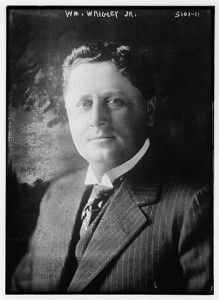In This Article
(Click the links below to move easily to sections of this article)An Executive’s Take on Creating Yes People
What are Yes People (Yes Men and Yes Women)?
The Danger of Yes People
Why You Don’t Want a Team of Yes People Working For You
An Executive’s Take on Creating Yes People
When two people always agree, one of them is unnecessary. — William Wrigley Jr.
 William Wrigley was an industrialist who founded Wrigley Chewing Gum. His quote above explains the contradiction of always seeking the counsel of a person who always agrees with you.
William Wrigley was an industrialist who founded Wrigley Chewing Gum. His quote above explains the contradiction of always seeking the counsel of a person who always agrees with you.
Specifically, you may feel good that you can count on a particular employee to validate the wisdom of your thoughts. It may even give you a certain comfort that you are taking the right action on a critical decision.
The truth is however that if you have an employee who always agrees with you, she or he is unnecessary. Some might even argue that this person is little more than a yes woman or a yes man to you.
Their argument has much validity.
Look at it this way: If you’ve surrounded yourself with a team of yes-people who always agree with you, you might as well just listen to yourself and stop asking others for their input. The truth is you really don’t value their opinion; what you value is an echo.
Yes people maybe okay for some situations (putting out an ongoing dangerous fire), but they are not good for business. In fact, yes people are especially not good for you if you are their manager.
William Wrigley had it right!
Having yes people around you may feed your ego, but it does little for your effectiveness as a leader. Share on XWhat are Yes People (Yes Men and Yes Women)?

As Merriam-Webster explains, a yes person is “one who endorses or supports without criticism every opinion or proposal of an associate or superior.”
Are yes people born or made? Some people believe that yes people are born that way. While it’s true that some people (the extroverted) are more quick to express their opinions than others (the introverted), the truth is that anyone can become a yes person. Even your most vocal team members will stop expressing their opinions to you, if you make it unpleasant for them to disagree with you.
In my experiences, I’ve found that more often than not, yes people are made not born. Managers create a working environment as they lead their team. Team members learn quickly what behaviors will bring rewards from their manager and what behaviors will bring punishment from their managers. If you reward people for open communication, you will get more of it from your team members. As the saying goes, you get what you reward.
If you do not allow team members to disagree constructively about something that is occurring in the workplace, your actions communicate that you do not value the opinion of your team members. This is true even if you feel otherwise and are just too busy to ask. (As a manager, your unintentional actions can be just as destructive as your intentional actions.)
If you do not correct this practice of neglecting to ask for feedback and listening to it when you get it, you will create a working environment where your team members are little more than yes people.
If you don't allow your people to disagree with you, you're in danger of creating a team of yes people. Share on XThe Danger of Yes People
 Yes people ARE underutilized assets!
Yes people ARE underutilized assets!
They are unable, and maybe even unwilling, to give you critical information that you need to improve workplace operations or maybe even keep your organizational credibility.
When your team members fail to voice their concerns about a course of action that you are taking, it’s easy to put the blame on them. There’s even a reasonable argument that can be made for this position.
The question you should ask yourself is this, however: Are you creating the right environment for your team members where they feel that you will both (1) hear what they have to say AND (2) seriously consider their advice even if it contradicts what you want to do.
If you’re not encouraging healthy disagreement in your interactions and communication with your team, then the larger fault for their reluctance to speak up may lie with you and not with them. (Ouch! I know that stung and I’ve been here before myself. It’s situations like these where we need that emotional intelligence stuff.)
Why did I point this back at you?
I did this because I’ve learned the following often occurs in situations where team members do not speak up in disagreement with their leader:
When team members consistently fail to disagree with you, it’s often because they either see things like you do because you’ve hired a team that is exactly like you (not a good practice) OR because they believe that you will either ignore them or punish them for disagreeing with you.
Either way, you’ve got a team of yes people and having a team of yes people surrounding you is not only harmful to the organization, but it is also harmful to your own leadership.
When team members ALWAYS agree with you, it's because you've hired a team that is exactly like you (not a good practice) OR because they believe that you will either ignore them or punish them for what they have to say. Share on XWhy You Don’t Want a Team of Yes People Working For You
 Managers who only want people who agree with them to work with them, create unnecessary teams. They create teams of yes people. This is a mistake that you want to avoid making as you work with your team.
Managers who only want people who agree with them to work with them, create unnecessary teams. They create teams of yes people. This is a mistake that you want to avoid making as you work with your team.
When you work with a team of yes people, they can’t help prevent you from taking leadership actions that are equal to “jumping off a cliff.” They’ll either follow you over the cliff or save themselves and stop following you as they watch you take your long dive to the bottom.
To get the best results from your team, it’s important for you to give your team members the power to speak their convictions. To be productive, team members need the power to disagree appropriately with you and with each other! Productive conflict is good for any group. Healthy dissent makes operations better.
As Walter Wrigley said, when two people always agree, some of them are unnecessary. His quote is even more true when we’re talking about managing a group of people. Encourage others to disagree with you and with each other CONSTRUCTIVELY and you will make your team necessary!
Once you have a necessary team working with you, you’ll have valuable team members who will save your bacon on more than one occasion.
When two people always agree, one of them is unnecessary. - Wrigley Walter Share on XThis article is accurate to the best of the author’s knowledge.
Content is for informational or educational purposes only and does not substitute for professional advice in business, management, legal, or human resource matters.